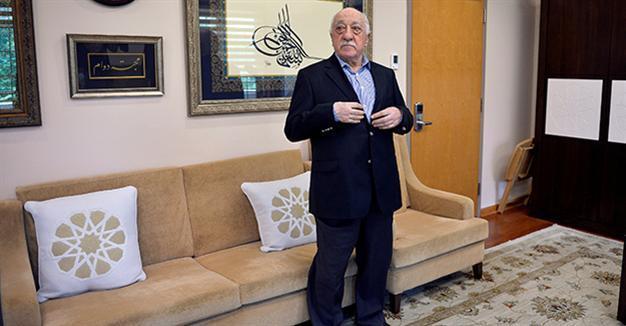Gülen’s parallel hierarchy exposed as probe into failed coup attempt deepens
ISTANBUL

REUTERS photo
As the probe deepens into U.S.-based Islamic scholar Fethullah Gülen’s supporters, the suspected organizers of the July 15 failed coup attempt, more of the hierarchy inside the Gülenist group has come to light, as reports have revealed Gülenist leaders known as “imams” commanded their superiors in the military and state organization.
The “imam” of the General Staff was Muhammet Uslu, a former cleaning worker who built up an “irrepressible career” due to his Gülenist links, daily Hürriyet columnist Abdülkadir Selvi wrote on Aug. 3.
Uslu was employed as a cleaning worker between July 7 and Aug. 15, 2000, and then graduated from Anadolu University in Ankara. He started living in Gülen movement houses while studying there, according to Selvi.
The movement then reportedly found him a job in the Gülhane Military Hospital’s (GATA) Health Foundation as soon as he graduated and he did his military service in GATA’s Support Command.
“When his military service ended, he was assigned to work in [the eastern province of] Kars as a teacher. He worked there for two or three years and then was assigned to Ankara as an assistant manager in a short while. His rise in the bureaucracy continued as his position in the Gülen movement increased,” Selvi wrote, adding that opponents in the exams Uslu took either didn’t show up or retracted their applications to take the exams.
His career in the Gülen movement ended up with him becoming the “imam” of the General Staff.
Imam, which traditionally refers to a religious public worker, is a term used by the Gülenist organization to mark local leadership.
Uslu was mentioned as a “brother” in the testimony of Infantry Lt. Col. Levent Türkkan, Chief of General Staff Gen. Hulusi Akar’s aide, who previously confessed his allegiance to the Fethullahist Terrorist Organization (FETÖ).
Türkkan also said they had bugged the rooms of Akar and the former army chief Necdet Özel, which was also mentioned in Uslu’s testimony.
“Türkkan, who used the code name ‘Ahmet,’ and ‘Salih’ code-named Gökhan Eski, who was working in the general staff, bugged the room of the chief of general staff and brought the device that we called ‘a radio’ to me after it was full. I was giving them an empty one afterwards. We listened to the army chief for a long time for the Gülen movement,” Uslu said in his testimony.
Uslu’s house was among the places where the July 15 failed coup attempt was discussed, without him being present, according to the testimony.
Meanwhile, Hakan Çiçek, the “second imam” of the Akıncı Air Base in Ankara and the owner of a Gülenist school, Anafartalar College, was at the air base during the failed takeover, Mesut Hasan Benli from Hürriyet reported on Aug. 3.
Çiçek reportedly said he was invited to the air base by Col. Ahmet Özçetin, who told the former that there was a “social event” at around 8 p.m.
“I went to the Akıncı Air Base. Özçetin and a couple of others were there, but I didn’t know them. Military mobility started a few minutes later, so I couldn’t go out. I was there until the morning. When I was escaping the Gendarmerie caught me. I didn’t know what was happening,” Çiçek said, adding that he “wasn’t a FETÖ member and didn’t know Gülen.”
Another “imam” of the Gülen movement is İsmail Büyükçelebi, who has been called Gülen’s successor, daily Milliyet reported on Aug. 3.
Büyükçelebi reportedly has a say in the financial resources and educational institutions of the movement and is a mediator between political figures and Gülen.
Several other reports showed that Gülenist superiors in the military who took part in the July 15 coup attempt obeyed their juniors and sometimes even civilians in several cases, remaining loyal to their illegal order, not their own ranking.
